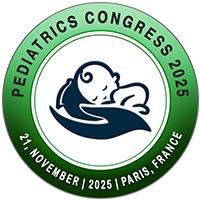
Anastasiia Kharitonova
Clinical and Research Institute of Emergency Pediatric Surgery and Trauma (CRIEPST), Russian FederationPresentation Title:
The Results of Peroral Endoscopic Myotomy (Poem) in Children with Achalasia
Abstract
Introduction: Achalasia is a rare neurodegenerative esophageal disease. Currently there are not approved guidelines for the treatment in children. Peroral endoscopic myotomy (POEM) has emerged as perspective alternative to surgery.
Aims: To evaluate the effectiveness of POEM for pediatric achalasia.
Methods: Between 2018 and 2025 17 children (6 girls and 11 boys) aged from 1,5 to 18 years (mean age 11,7±4,4 years) were examined and treated for achalasia. All of them complained of weight loss, regurgitation, dysphagia (Eckardt score 7,5±2,6). 3d stage of achalasia was diagnosed in 14 children, 2nd stage – in 3. All patients underwent underwent standard steps of POEM. The length of submucosal tunnel ranged from 8 to 16 (12,7±2,3) cm, the length of full-layer myotomy was from 6 to 13 (10,4±2) cm.
Results: Mean operative time was 62 ± 8,4 min. All patients had smooth postoperative period. No intraoperative complications were detected. Feeding with mashed food was started on the next day after POEM. Mean hospital stay was 6,2+0,2 days. After 3 and 12 months, as well as in more than 2 years, all children showed regression of dysphagia and regurgitation (Eckardt 0), free passage from esophagus to stomach, weight gain 3–18 kg, and no clinical signs of gastroesophageal reflux disease (GERD). Non-erosive reflux esophagitis was revealed in 2 children, erosive reflux esophagitis grade A – in 1 boy with Allgrove syndrome, who received lifelong hormone therapy. Radiography signs of GERD were diagnosed only in 1 girl who got POEM for recurrent achalasia after Geller-Dor surgery.
Conclusion: Based on our results, as well as the literature data, POEM is promising and effective treatment for achalasia in children minimizing complications and recurrences. Advanced endoscopic tunnel techniques lead to reduction of operative time, length of hospital stay and to significant improvement of children’s life quality.
Biography
Anastasiia Kharitonova has completed her PhD at the age of 31. She is the head of Endoscopy department at CRIEPST since 2014. She has over 120 publications and was twice awarded of the Young Scientists Prize. Her publication h-index is 9.

